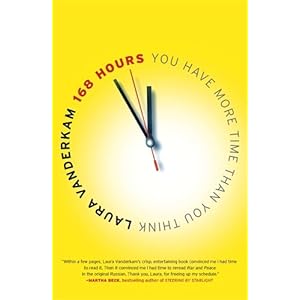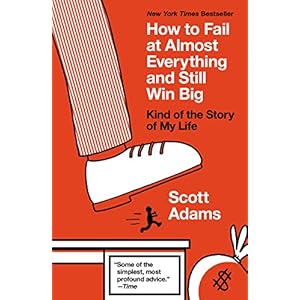This week's book review is on Laura Vanderkam's book, 168 Hours: You Have More Time Than You Think. She has written several books on time management, as well as interesting articles in venues such as Fast Company.
I read this book some weeks ago and found it eye-opening. I have even referenced it here on the blog before. While I do have a few issues with the book, it's well worth reading for its core insights.


Rating: 4 stars
General Comments: It's an easy-to-read book, peppered with personal stories and examples - definitely a quick read. There are many insights that are surprising, while some others seem difficult to implement, or don't really apply for many people. The book also skips over the notion that lifestyle changes are difficult to implement, and just assumes its a matter of knowing what we need to do, and then plugging it into our existing schedule.
3 Insights From The Book:
1. Think in 168 Hours - The primary insight from the book is that it is more useful to think in terms of the week, rather than the day - 168 hours instead of 24/7. This insight enables those with busy schedules who can't seem to fit it all in, to find creative ways to expand their schedules. For instance, Vanderkam gives the example of parents who can break up a working day by adding 3 hours of work after the kids have gone to bed, giving the parents time with their children, without needing to work less hours.
2. Focus on your core competencies - Focus your time on doing those things that you are good at, or those skills that you want to improve on. Which also means, you should reduce or remove altogether time spent on tasks that you are either not good at, or that aren't part of your competencies - such as doing housework. As far as possible, try to outsource those elements of your schedule that you aren't good at, to focus on what is important.
3. Plan your leisure time - This is probably one of the most interesting insights from the book - that we have more leisure time than we think, and in order to utilize it well, we must plan the time, or otherwise risk losing it in mindless TV watching or internet surfing. Vanderkam gives the example of extremely busy professionals who nevertheless find the time to train for triathlons and volunteer their time to charity by planning ahead. Even a small amount of time planning some leisure activities ahead of time (including at least 3-4 hours of exercise per week) can dramatically increase our quality of life, health and productivity at work.
Recommend For: Anyone who struggles with making time for leisure, or complains that there isn't time for everything. Especially recommended for those trying to squeeze in creative pursuits around a day job, family and other commitments - gives insights into how we can use our whole schedule.








